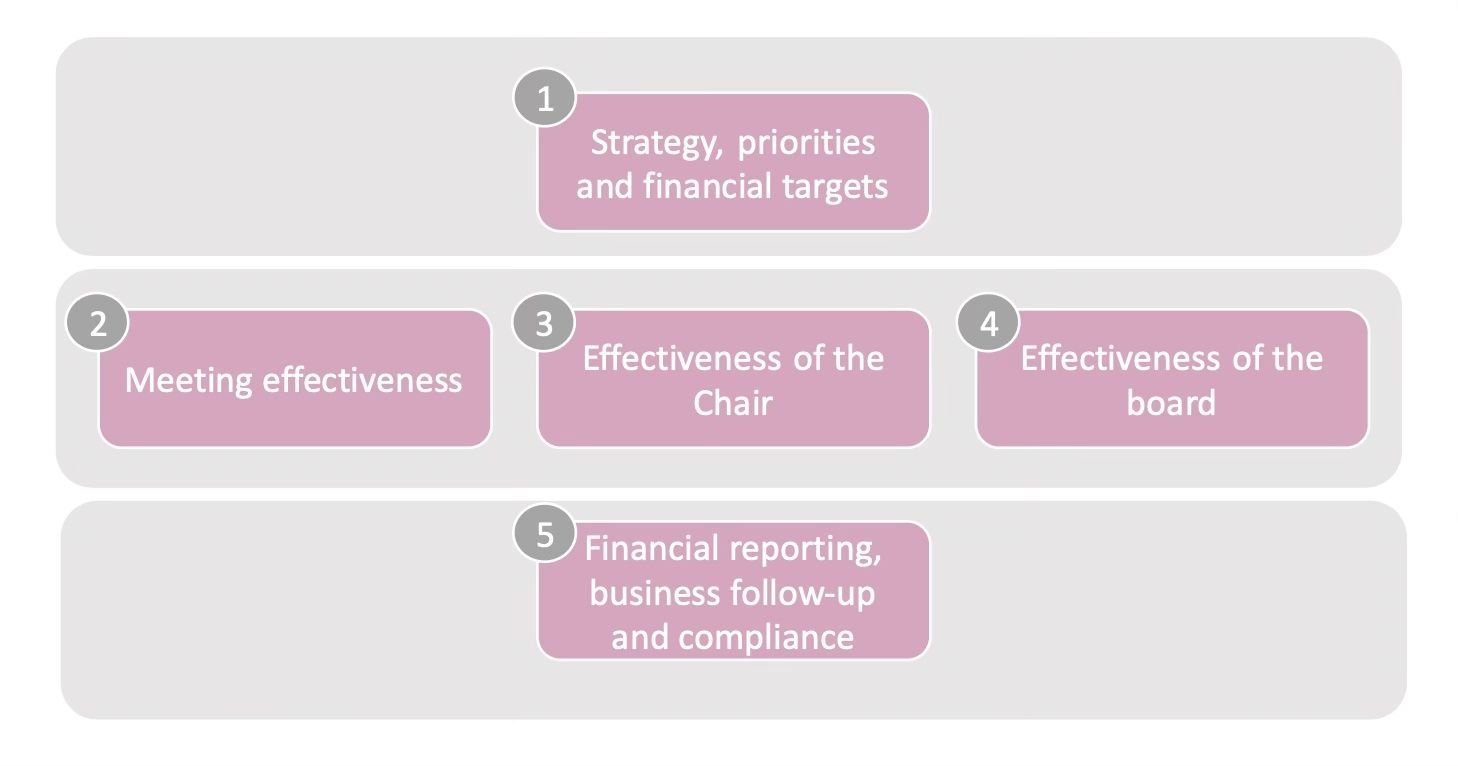Board Excellence: The TLT Framework for Board Evaluations
When it comes to good governance, boards are crucial for guiding an organization to success. They require regular assessments and modifications to ensure they operate at their peak efficiency. That's where board evaluations come in, and in this discussion, we'll explore why all boards should regularly conduct evaluations, using insights from the TLT Board Evaluation.
1. Strategy, Priorities, and Financial Targets:
A board's primary responsibility is to guide an organization towards its strategic objectives while safeguarding its financial health. Regular evaluations based on this aspect of the TLT Leadership Framework help in assessing whether the board is aligned with the organization's long-term goals and financial stability. It allows for a thorough examination of the strategies in place and whether they are driving the organization forward.
2. Meeting Effectiveness:
Boards function through meetings. The efficiency of these gatherings is paramount. An evaluation focused on meeting effectiveness, as outlined in the TLT framework, can identify areas for improvement. This includes time management, agenda effectiveness, and the engagement levels of board members. Improving meetings can lead to better decision-making and overall board performance.
3. Effectiveness of the Chair:
The chair of a board is like the conductor of an orchestra, responsible for harmonizing the efforts of all members. Evaluating the chair's effectiveness, in line with the TLT Board Framework, helps to gauge their leadership style, ability to facilitate discussions, and maintain order during meetings. A strong chair is essential for a well-functioning board.
4. Effectiveness of the Board:
Ultimately, the success of an organization hinges on the effectiveness of the entire board, not just its individual members. Evaluations focusing on the overall effectiveness of the board, using the TLT framework, can highlight areas for improvement. It encourages board members to reflect on their collective performance, dynamics, and decision-making processes, all of which impact the organization's direction.
5. Financial Reporting, Business Follow-up, and Compliance:
Financial transparency, robust business follow-up, and compliance with regulations are vital for any organization. Evaluations based on this aspect of the TLT framework assess whether the board is fulfilling its fiduciary duties effectively. This includes reviewing financial reports, ensuring business operations align with the organization's mission, and verifying adherence to legal and ethical standards.
So, what happens when boards neglect regular evaluations using the TLT Leadership Framework?
Several consequences can unfold:
Stagnation: Without assessments, boards may become complacent, sticking to outdated strategies and routines.
Inefficiency: Meeting ineffectiveness can lead to poor decision-making and unproductive board dynamics.
Lack of Accountability: Neglecting financial reporting and compliance can result in financial and legal troubles, damaging the organization's reputation.
Leadership Issues: Failure to assess the chair's performance can lead to leadership problems and conflicts.
Strategic Misalignment: A board that doesn't evaluate its alignment with the organization's strategy may inadvertently steer the organization in the wrong direction.
In conclusion, regular board evaluations based on the TLT Leadership Framework are essential for maintaining a healthy, dynamic, and effective governance structure. They help boards stay on course, adapt to changing circumstances, and fulfill their crucial roles in achieving organizational success. By conducting these evaluations, boards demonstrate their commitment to excellence, transparency, and accountability, ultimately benefiting the organizations they serve.
